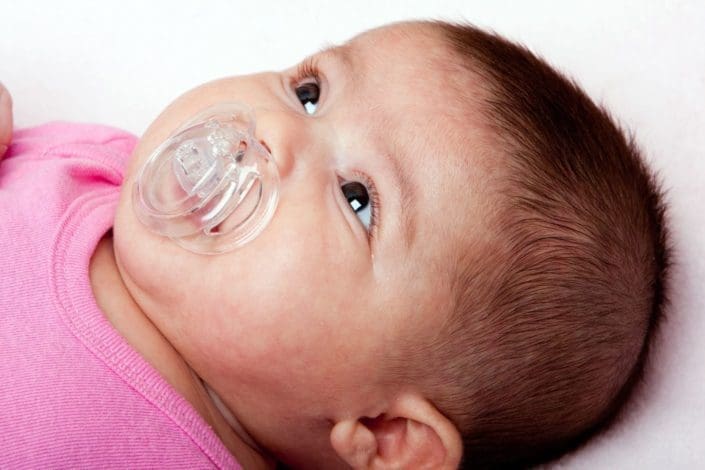How to Wean Baby Off Pacifier at Night

Related Topics
Sucking comes naturally for babies. Some babies suck their thumb or fingers. Others like to suck on a pacifier. Pacifiers often are a form of security or comfort. And a great help to mom and dad. The pros and cons of pacifier use are nearly even. The only question left to ask is, "When should my baby stop?"
Path to improved well being
Pacifiers have several benefits. These include:
- Pacifiers are the most helpful in children younger than 6 months of age.
- Soothing a fussy baby. Sucking on a pacifier will calm your baby. It can even help a baby fall asleep. Many parents find pacifiers helpful at night or in public areas. Using a pacifier also can be helpful during your baby's common medical procedures. This includes vaccinations and blood tests.
- Sucking on a pacifier when sleeping may lower your baby's risk of sudden infant death syndrome (SIDS). Doctors believe this may be because babies sleep lighter while sucking the pacifier.
Things to consider
Giving a baby a pacifier too early may make it difficult to learn to breastfeed properly. It is best to wait until your baby knows how to breastfeed. This is usually around 1 month of age.
You may have to get up in the middle of the night to put the pacifier back in your baby's mouth when it falls out. Eventually, the baby will learn to put it in on his or her own.
Pacifier use may cause inner ear infections. Also, it may cause dental problems if used after the age of 2.
Pacifiers have germs on them. Those germs can make your baby sick if the pacifier isn't washed frequently.
If your child uses a pacifier, remember these helpful tips:
- Never force your baby to use a pacifier. If it falls out at night and your baby doesn't notice, don't put it back in.
- Never put anything on the pacifier to encourage your child to use it (honey, sugar).
- Always buy one-piece pacifiers. Two-piece pacifiers can break and become choking hazards.
- Never add a tie or ribbon to the pacifier. Never tie it around your child or the bed. It can strangle your baby.
- Chose a pacifier that has a shield that is wider than your child's mouth. Make sure the shield has hole in it.
- When trying to calm your baby, try other methods first. This includes rocking, singing, or holding. Offer the pacifier last.
- Check to see if your baby is hungry or needs a diaper change before you offer a pacifier.
Your doctor can help you decide when your child should stop using a pacifier. Consider stopping when your baby is 6 months to 1 year of age. Pacifier use is not recommended for children older than 4 years of age.
Questions to ask your doctor
- Will the hospital give my baby a pacifier when he or she is born?
- Is the hospital pacifier the safest?
- Is the plastic in the pacifier toxic?
- Is it cruel to let the baby cry when you're weaning him or her from the pacifier?
![]()
Copyright © American Academy of Family Physicians
This information provides a general overview and may not apply to everyone. Talk to your family doctor to find out if this information applies to you and to get more information on this subject.
How to Wean Baby Off Pacifier at Night
Source: https://familydoctor.org/pacifiers-benefits-and-risks/